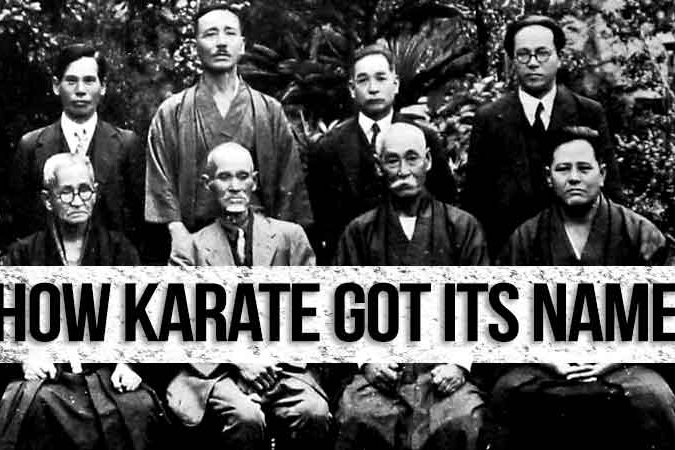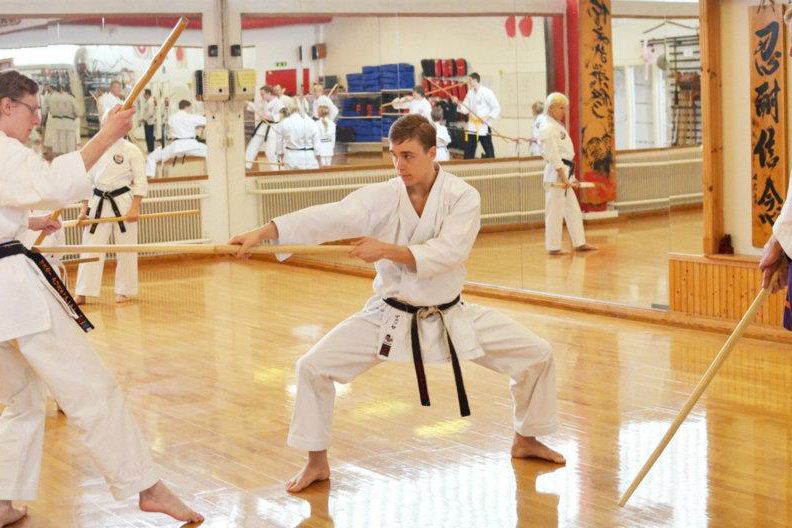Last week I performed a small experiment during kid’s Karate class.
(I know, I’m evil like that. Bwahaha, manic laugh etc.)
I took five junior black belt kids, and gave them each a “student” (another kid), with green, blue or purple belt. Some got two students, some got one. The junior black belt kids were then asked to teach a certain section from the kata Bassai Dai to their “students”. They had a finite amount of time before they had to switch students (the groups formed a kind of circle, so they just walked to the next student when I said switch).
In other words; when the experiment was over each junior black belt kid had taught the same sequence of Bassai Dai to at least five different students.
Looking from the other side, a student had received instruction in the same sequence of a kata from five different instructors.
It would be a gross understatement to say that I love doing experiments like these.
You just learn so, so much.
With “you”, I mean “everybody.”
Anyhoo, the lesson was about to end so we wrapped it up by having each “student” show the sequence to the rest of the class, and when all of the kids had shown their kata sequence the rest of the kids could vote. Who had been the “best” instructor? Who had been the “best” student? Which, of course, led us to discuss exactly what a good instructor is. And more importantly; exactly what a good student was. How do people learn? Why? And what is important when you teach? Why? Practical? Easy? Cool? Fun? Bunkai? Spirit?
That sort of stuff.
The lessons were numerous, for everyone.
Perhaps mostly for the junior black belt kids.
Because the truth is, they had barely known Bassai Dai themselves. They only learnt it a couple of weeks before! But, just like when you study stuff in school, trying to passively remember what you’ve just studied – then actively writing it down – is often a surprisingly good way to learn.
Teaching is learning.
And your brain can only absorb what your ass can endure.
Here’s the deal: In a study I recently came across, published January 21 in Science, researchers had asked 200 college students to spend five minutes reading a short passage about a scientific subject. Afterwards, they were either told to re-read it several times (as if cramming for a test); make concept maps of the material (trying to concreticize an abstract structure of the material); or spend 10 minutes writing a free-form essay about the passage (letting the “juices” flow).
Compare this to how you learn Karate.
(No, I won’t spell it out for you! Geez…)
One week later, the students in the study were given short-answer tests on what they remembered, and asked to draw logical conclusions from those facts. The result?
- Students who originally wrote essays performed best!
- Next came the crammers…
- …then the “concept mappers”.
As if adding insult to injury, the students were then asked to draw simple concept maps from memory, and – lo and behold – the essay-writers again did best, even beating those students who made concept maps the first time around!
Isn’t that amazing?
The findings are a bit limited, sure, but they seem to suggest that retrieval practice, (as the essay-writing was called), is a pretty powerful learning tool. Recalling stuff, sorting it our in your brain, restructurizing it and then presenting it in a comprehensible way (as in teaching another person) is indeed a very powerful way of learning stuff.
The same goes for this website, actually. What, you think I know everything I write about? Hell to the no! Often I learn more when I write about something than I did before. I just act like I’m this ultra confident super Karate grand master blogmeister to gain your respect. Really, I know nothing. I’m just a big phony. Please, believe me. I totally suck at everything Karate related (is this reverse psychology thing working yet?).
🙂
Teaching is learning.
But better.
However, everything is not peaches and roses. Here’s an interesting side note to the previously mentioned study: “Concept mapping” and “cramming” did prove useful in at least one way. Beacause, when asked to self-assess their learning, students who used those methods reported higher levels of understanding than their essay-writing counterparts!
So, they didn’t actually learn much…
But they felt like it.
While the opposite applied to the essay-writers!
Here’s the original graph:

So, what can we learn from this?
Whoah…
So, so much.
“Shu-ha-ri” most of all.
Think about what kind of dojo you have, what kind of learning environment it encourages, what methods you generally use, what results you have been getting, how high the rate of “I don’t know this stuff, sensei!”-complaints is, how high the rate of “I totally know this stuff already, sensei!”-complaints is, how high the failure rate (gradings, tournaments, tests) is compared to that, what the general skill level in the dojo is (comparing other similar dojos/senseis/students), what the general difference/similarity is between students who also teach or practise by themselves, their perceived skill level, choice of methods blah blah…
Also, perhaps most importantly, what is the general purpose of the dojo? Producing top-notch, bona-fide, killing machines? Making people… feel good? Feel bad? Step by step emptying students pockets? The implications and applications of the knowledge contained in this post is monumental. Use it or lose it.
Play the rules, make the rules, break the rules.
Let’s analyze.



8 Comments